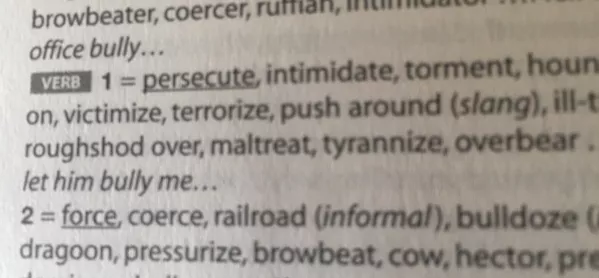Prejudice and racism are complex social problems, not isolated to schools. But it’s clear that schools can play a hugely valuable role in helping to bring about social justice and change by addressing these issues through education, learning and fostering positive relationships.
Unfortunately, it’s all too clear that racism and prejudice-based bullying affect the lives of too many children and young people. A new Unesco report on school-related bullying published in January says that one in three children has been bullied within the previous month, with children perceived as being different in any way the most likely to be bullied, with physical appearance being the most common characteristic related to bullying followed by race, nationality or skin colour.
Last year, Childline figures revealed that children as young as 9 were contacting the helpline about race or faith-based bullying.
Quick read: Bullying dominates our society - not just schools
Teachers are bullied, too: ‘Bullying is endemic in our profession’
Concerns over Scottish advice: New bullying guidelines ‘don’t go far enough’
These alarming statistics followed a 2017 report from the Scottish Parliament’s Equalities and Human Rights Committee, which told a troubling tale of prejudice-based bullying in Scotland’s schools stripping young people of their rights and feelings of control.
Bullying: tackling the root causes of prejudice
The evidence and practice from across the country tells us that anti-bullying work that clearly addresses the particular needs of vulnerable or minority groups can be more effective in addressing the specific context around racism and the root cause of prejudice.
Every school is different and the best people to articulate what the day-to-day environment is like for young people are young people themselves. The voices of ethnic-minority children and young people, as well as their parents, carers and families, are therefore critical to foster a sense of belonging and connectedness for all.
Respectme and race-equality charity the Coalition for Racial Equality and Rights (CRER) have published a guide, funded by the Scottish government, to help teachers address racism in schools. It includes advice on negative messaging, inclusive learning environments and how diversity can be embedded in the curriculum.
A group of ethnic-minority young women from Edinburgh, supported by Action for Children Heritage and Inclusion Project, gave their views on the resource and made suggestions on how their educational experiences could be improved: “We feel that it is important for society that subjects taught in school reflect our lives, our histories and our role models. This will not only prove that our lives matter, but will help reduce racism, stereotypes and hate.
“Young people also need the opportunity to understand their rights, be proud of their identity and learn how to deal with inappropriate behaviours and inequalities.”
The resource complements Respectme’s wider anti-bullying campaign that launched during Anti-Bullying Week in November 2018, #ChooseRespect. For the first time, our campaign is designed to help educators keep up the momentum of their anti-bullying work and conversations throughout the entire school year.
Our message is simple: we don’t all have to like one another, but we must respect one another by understanding and celebrating what makes us different and unique.
Katie Ferguson is director of Respectme, Scotland’s anti-bullying service


